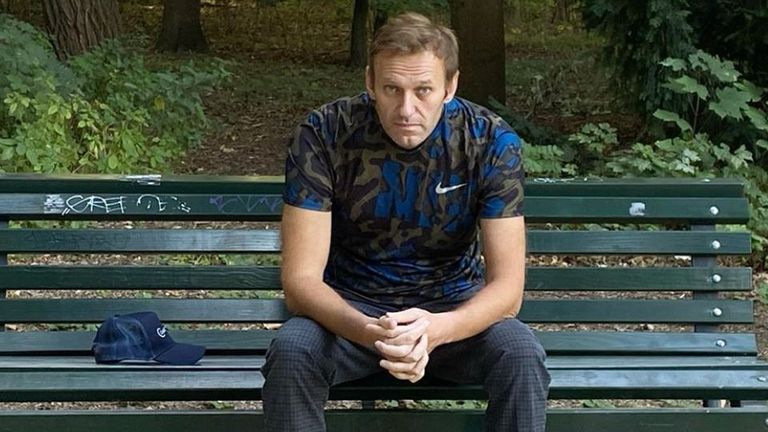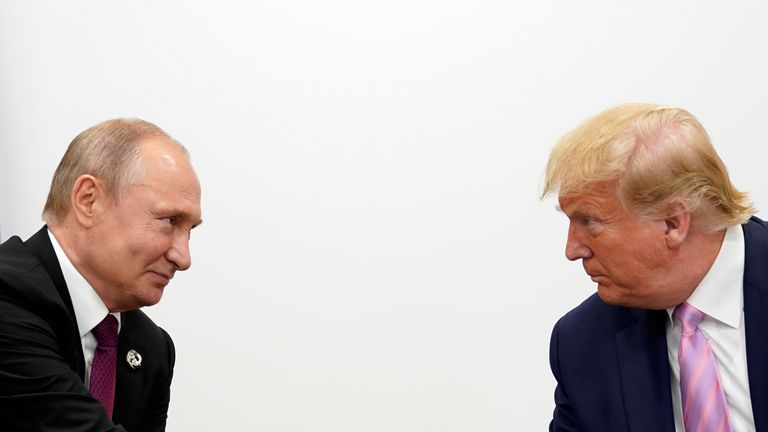Joe Biden has spoken to Vladimir Putin for the first time since taking office, with the US president raising concerns over the treatment of Alexei Navalny.
The high-profile opposition figure, a vocal critic of the Russian president, was jailed after returning to Moscow from Germany, where he was recovering after being exposed to novichok.
Mr Navalny blamed the nerve agent attack on the Kremlin – which it has denied.
His arrest sparked protests across Russia and led to 3,700 arrests, and more demonstrations are planned for the coming weekend.
Elsewhere in the call, US officials said that Mr Biden declared he knew Moscow had attempted to interfere with the 2016 and 2020 elections – and pressed Mr Putin on reports that Russia offered the Taliban bounties to kill American troops in Afghanistan.
The Kremlin’s readout of the call didn’t contain these contentious issues and instead described the conversation as “frank and businesslike”, which is often relied upon as a diplomatic way of saying discussions were tense.
However, there were some positive developments on the call. Days before their last remaining nuclear arms control treaty was due to expire, both men agreed on a five-year extension.
The renewal of New START means that both countries will be limited to no more than 1,550 deployed nuclear warheads and 700 deployed missiles and bombers.
Moscow had contacted the White House to request the call last week, with Mr Biden opting to speak to European allies first – including the UK, Germany and France.
Mr Putin’s experience with the new president will likely be a marked departure from the warmer relationship he had with Donald Trump, who repeatedly cast doubt on Russian interference in the 2016 election.
Mr Trump tried to cosy up to the Russian leader in private – against the advice of his staff – and limited the amount of staff who could listen in on their calls.
On the call, Mr Biden also warned that the US is willing to defend itself – and enforce further sanctions – if Moscow acts with impunity.
According to the Kremlin, both men discussed “acute issues on the bilateral and international agenda” – including the coronavirus pandemic, the Iran nuclear agreement, Ukraine, and matters related to trade and the economy.







